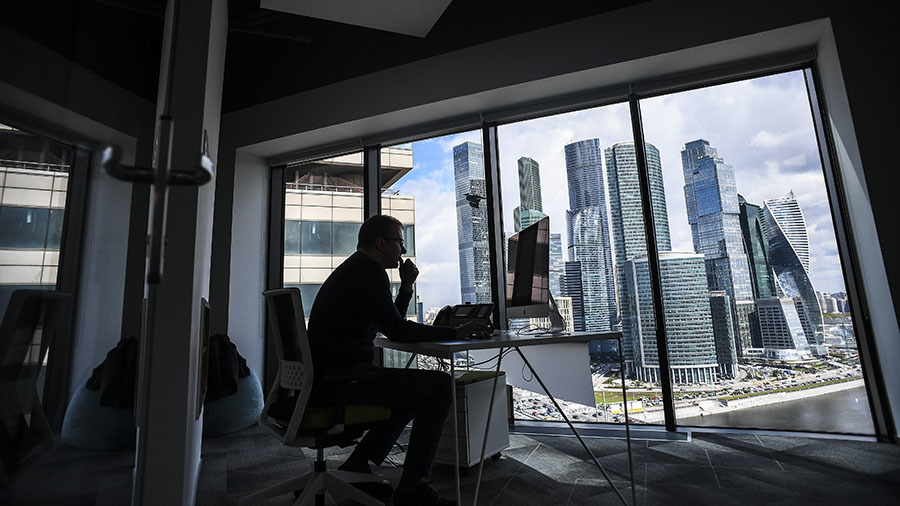State Duma deputies from the LDPR faction prepared and sent to the government a bill introducing a minimum hourly wage in Russia from January 1, 2021. It will be 150 rubles per hour and will apply only to employees working under fixed-term contracts on a part-time basis. In addition, this amount should be indexed annually based on the growth of consumer prices for the previous year.
The authors of the bill were deputy Andrei Svintsov, head of the State Duma committee on labor and social policy Yaroslav Nilov, head of the committee on federal structure Alexei Didenko, vice speaker of the State Duma Igor Lebedev and senator Sergey Leonov.
“In the context of the spread of a new coronavirus infection, employers try to avoid concluding labor contracts for an indefinite period, because when hiring an employee for temporary work, they do not have obligations related to staff reductions, and the intensity of work under this regime is known to be higher,” the explanatory note a note.
The authors of the project believe that the adoption of the law will increase the income of citizens in a pandemic. They believe that "using the minimum wage ... to calculate wages when hiring an employee for temporary work on a part-time basis will not allow him to provide normal life for a month."
One of the authors of the bill, the head of the State Duma Committee on Labor, Social Policy and Veterans' Affairs, Yaroslav Nilov, explained that the initiative does not provide for the replacement or elimination of the minimum wage as the base estimate.
“The minimum wage should be maintained, but at the same time, the cost of the hour, respectively, the lower limit should also be fixed. Thus, we proposed to underestimate the work that was underestimated in Russia today, and all this had to be done so that the salaries of citizens would increase, ”he said in his commentary to RT.
- RIA News
- © Ramil Sitdikov
Deputy Andrei Svintsov noted in an interview with RT that he stressed the relevance of this bill at the moment when many Russians had to switch to a remote mode of operation.
“A huge number of people ... sometimes are forced to work from the car, because in the country house, in remote settlements, there is no Internet, and they are trying to somehow come up with what is called a workplace that will allow them not to lose their jobs,” the deputy explained .
The authors of the project are convinced that in the current conditions it is necessary to provide additional protection for the rights of workers.
“We propose making the minimum hourly wage, because if we divide the current minimum wage into the hourly, it turns out, depending on the region, from 60 to 90 rubles. We believe that this is extremely small, ”said Svintsov.
Valery Ryazansky, the first deputy chairman of the Federation Council committee on social policy, told RT that the conversation on the transition to an hourly wage system in the State Duma has been going on for several years.
“Now, after the current events, as I understand it, the situation on the labor market will seriously change, types such as remote work will appear, and it is quite possible that this initiative can be reflected in the new system of labor relations,” Ryazansky believes.
Recall, in December last year, President Vladimir Putin signed a law establishing the minimum wage (minimum wage) from January 1, 2020 in the amount of 12,130 rubles per month.
The draft federal budget for the next three years also estimated the increase in the minimum wage from January 1, 2021 - by 2.6% (to 12,445 rubles), in 2022 - by 3% (up to 12,818 rubles).
According to statistics from the Federal State Statistics Service, the highest average salary in Russia between January and March 2020 was recorded in the Chukotka Autonomous Okrug - 109.1 thousand rubles.
Next to Chukotka are the Yamalo-Nenets Autonomous Okrug (101.5 thousand rubles), Moscow (95.5 thousand rubles), Magadan Region (89.5 thousand rubles) and Sakhalin Region (89.4 thousand rubles).
The lowest salaries in January - March of this year were received by residents of the Ivanovo region (an average of 27 thousand rubles), Dagestan (27.2 thousand rubles), Kabardino-Balkaria (27.5 thousand rubles), Altai Territory (27.6 thousand rubles) and Karachay-Cherkessia (27.6 thousand rubles).
In general, the average salary in the Russian regions for the first quarter of 2020 amounted to 48.3 thousand rubles.

